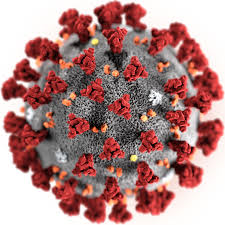- How to choose an ozone generator
- About ozone
- coronavirus
- Water ozonation
- Ozonation of fruit and vegetables
- Contact
- Vehicle ozonation
- Ozone concentration
- Ways of ozonation
- The use of ozone in industry
- Air Ozonizers
- Ozonation of cereals
- Ozone treatment in the meat industry
- Ozonation in cold rooms
- Fire - ozonation
- Ozone breakdown in water
- Allergy
- Ozone compatible materials
- Decontamination of air conditioning with ozone
- Ozone water treatment
- Home ozone generator
- Mushrooms
- Sewage ozonation
- Ozonation of hotel rooms
SARS-Cov-2 coronavirus
 Most viruses are not resistant to hand washing, disinfectants or ozone . Coronaviruses are no exception.
Most viruses are not resistant to hand washing, disinfectants or ozone . Coronaviruses are no exception.
It is difficult to determine exactly how long a bacterium or virus can survive outside the human body, e.g. on a door handle or handkerchief. In the case of viruses that do not meet the definition of a living organism, the question would be more precise after how long they cease to be dangerous to humans.
The fate of viruses or bacteria and the contagiousness of body fluids outside of the human body depend both on the own resistance of pathogens and the type of surface on which they are, as well as on environmental conditions - temperature, humidity, the presence of certain chemicals, pH (pH) and radiation UV, including - from the Sun. In countries such as India, a typical virus exposed to sunlight quickly ceases to be dangerous. Ozone generators or special UV lamps known from hospitals work similarly.
Coronaviruses - which have recently been widely reported due to the COVID-19 epidemic - are mainly spread by droplet route. A sneezing or coughing patient throws out saliva or mucus droplets along with the virus. These droplets can land on someone else's mouth or nose, or get drawn into your lungs. They can also settle on the surface of objects - bedding, clothing, door handle, and from there hit someone's hands, and when you touch your face - on the mucous membranes of the mouth, nose or eyes.
The coronavirus survives longer in a humid environment. Depending on the material and conditions, human coronaviruses present on a table or door handle can remain infectious from 2 hours to 9 days. At temperatures around 4 degrees C., some types of coronaviruses can remain active for up to 28 days. At 30-40 degrees Celsius, they can last for a shorter time.
The cyclical ozonation of surfaces, furnishings in our apartments, offices and communication vehicles effectively reduces the risk of coronavirus and influenza infection. Also, ozonation after infectious diseases will reduce the spread of viruses to other people.

